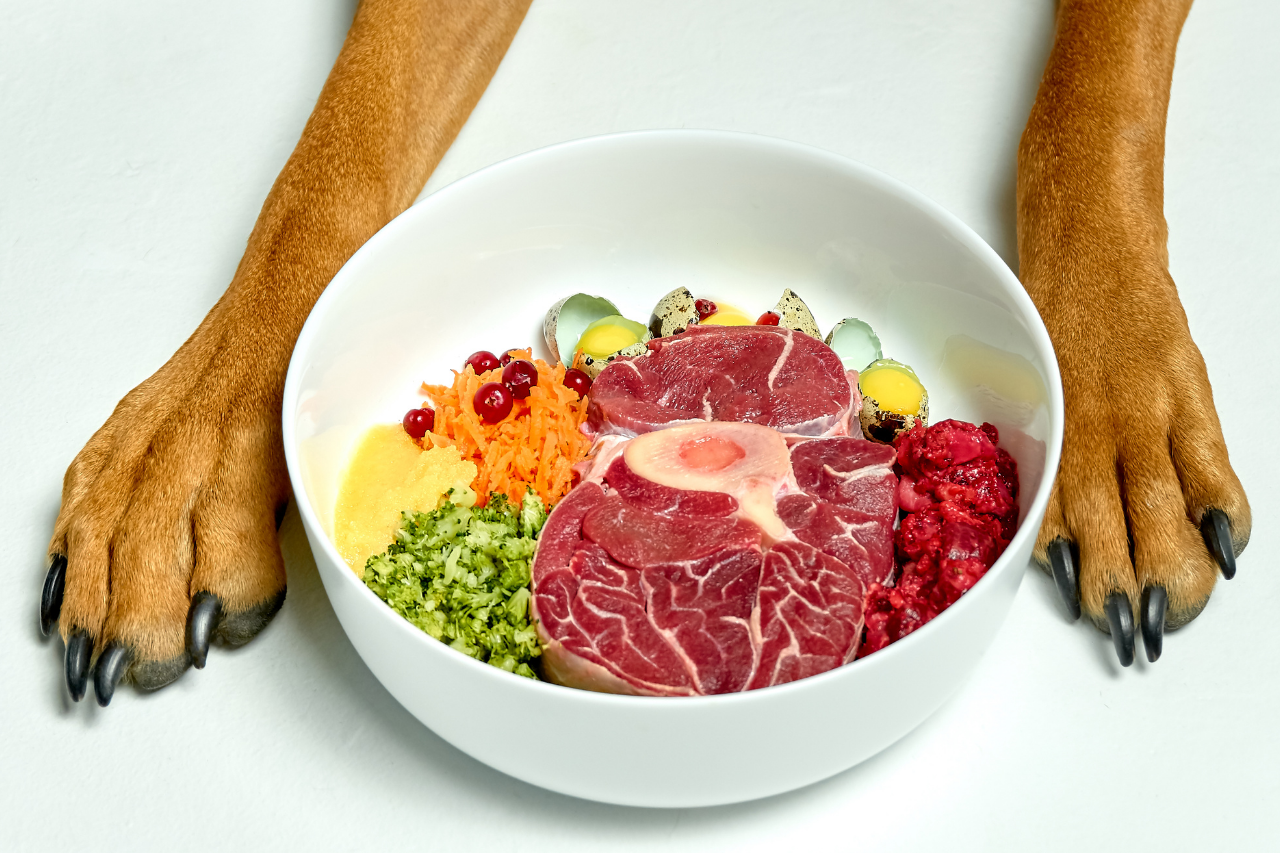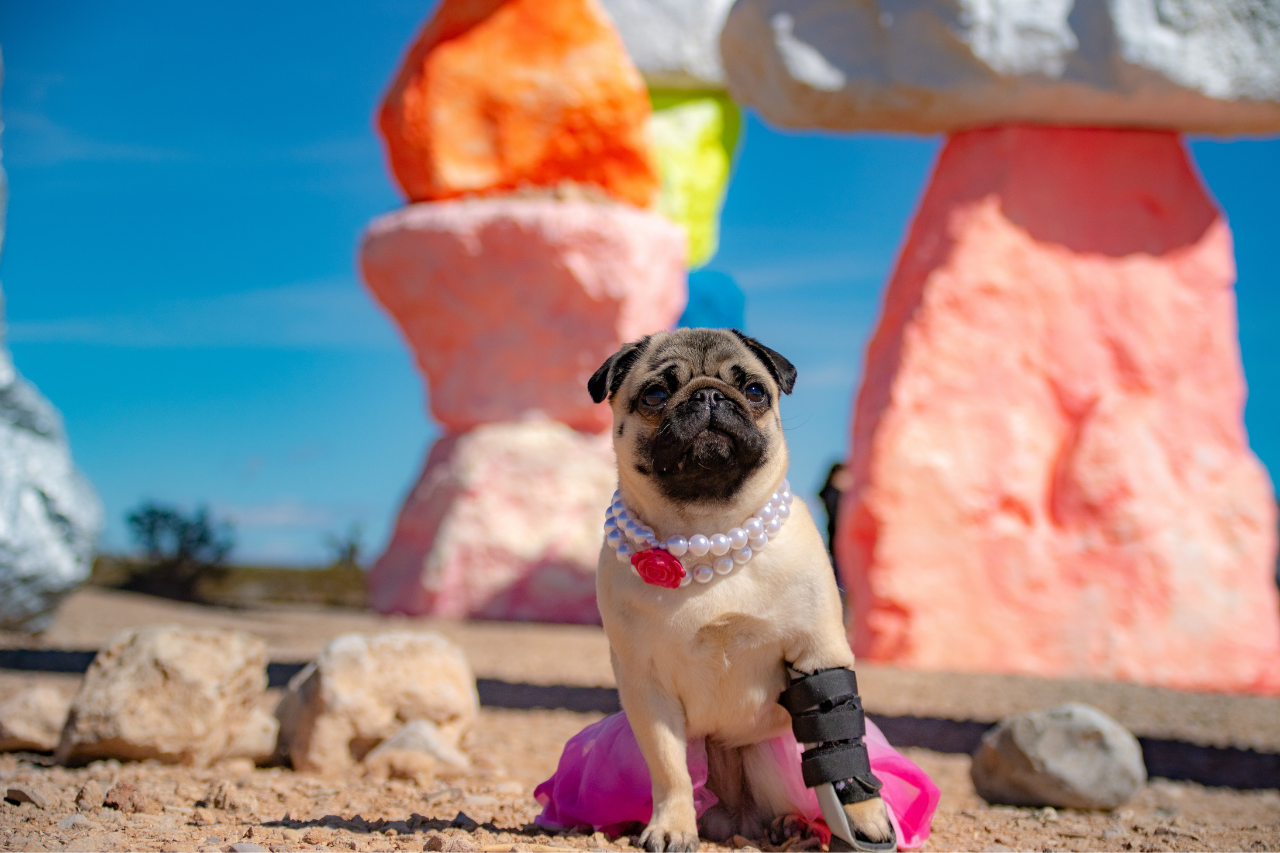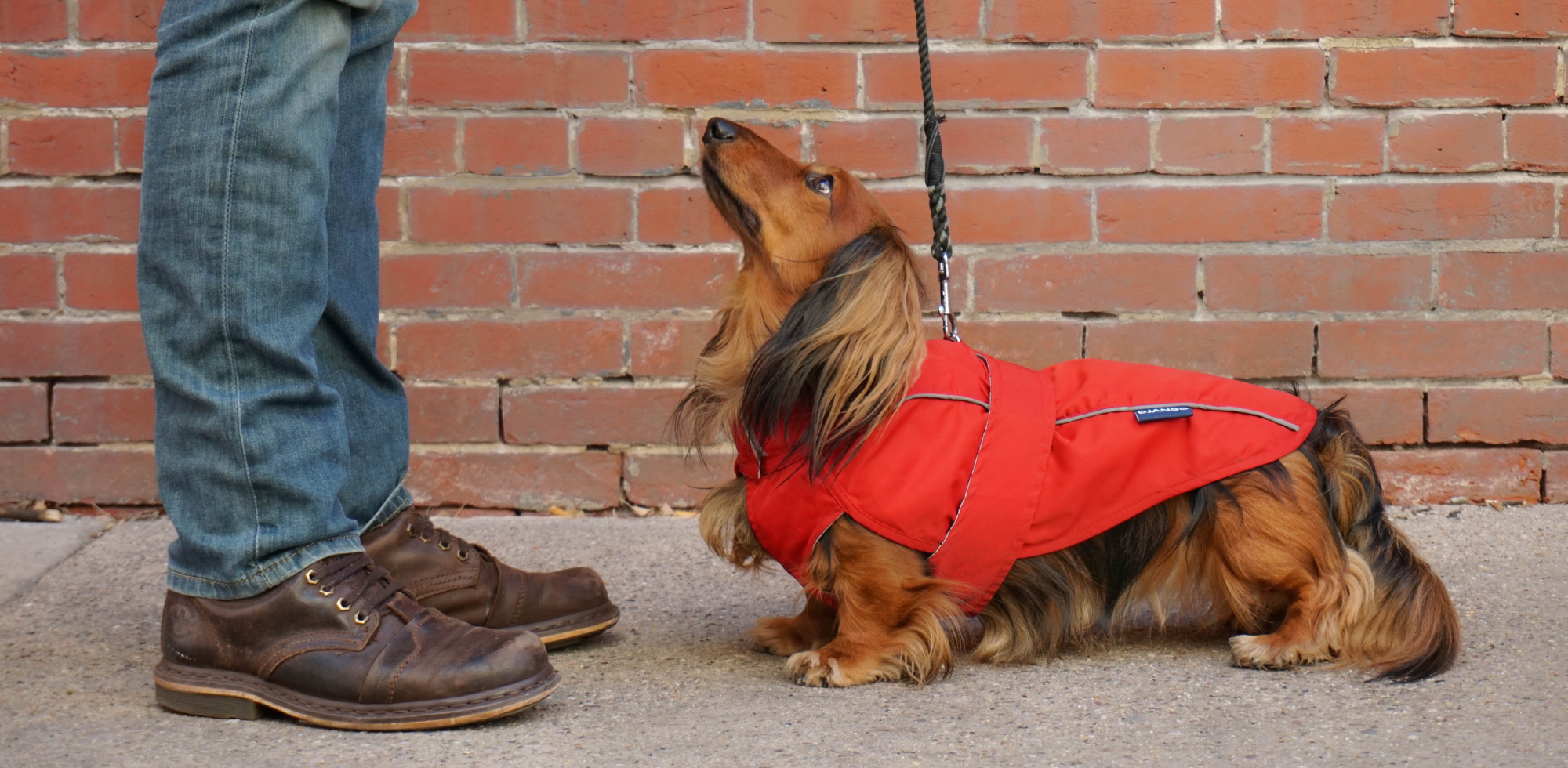Kennel cough is a common and highly contagious dog disease. It causes an ongoing, forceful cough in infected dogs and swelling in the lungs, windpipe, and voice box. If your dog has an unrelenting cough that sounds like a honking goose, he may have kennel cough.
While kennel cough sounds horrible, fortunately the majority of dogs recover without treatment. So what exactly is kennel cough in dogs? What dogs are most at risk for kennel cough, and what are its symptoms? Can humans contract kennel cough from their pets? Is there a vaccine for kennel cough?
In this DJANGO Dog Blog article, we explain the causes and symptoms of kennel cough in dogs. We also review available treatment options, discuss the Bordetella vaccine, and provide tips for prevention.
WHAT IS KENNEL COUGH IN DOGS?
Kennel cough, also known as canine infectious respiratory disease, is an upper respiratory infection in dogs. The most notable symptom is a loud, dry, and hacking cough. Mild cases may last fewer than 6 days and not need any treatment. Severe cases can turn into life-threatening pneumonia.
WHAT CAUSES CANINE KENNEL COUGH?
Kennel cough can be caused by both viruses and bacteria. Mild kennel cough is caused by a bacterium called Bordetella bronchiseptica and adenovirus type 2/canine parainfluenza virus. Canine herpesvirus causes kennel cough in very young puppies.
HOW LONG DOES KENNEL COUGH LAST IN DOGS?
Mild kennel cough usually lasts for 6-10 days. Severe kennel cough is the result of canine distemper virus, canine influenza virus, or mycoplasma canis. It is more likely to progress to pneumonia and usually clears up within 3 weeks. Older dogs or those with existing medical conditions may need up to 6 weeks to fully recover.
HOW IS CANINE KENNEL COUGH SPREAD?
Kennel cough is highly contagious. It is easily spread by direct contact with an infected dog or by sharing pet carriers, food and water bowls, toys, bedding, and dog apparel. Kennel cough is also airborne and can be easily spread when a dog barks, coughs, sneezes, or sheds dander.
Cold temperatures, exposure to heavy dust or cigarette smoke, crowded conditions, and poor ventilation increase the chance of your dog getting kennel cough. According to Dr. Heather Venkat, a state public health veterinarian at Arizona Department of Health Services in Phoenix, Arizona: “Your dog may get a cough right after transport because of increased travel stress which lowers his immune system and makes him more prone to getting sick.”
WHAT DOGS ARE MOST AT RISK FOR KENNEL COUGH?
All dogs can get kennel cough if they come in contact with an infected pet, but some dogs are more at risk of exposure than others.
Dogs that regularly go to doggy daycare, boarding and training kennels, dog parks, or grooming salons are at heightened risk of catching kennel cough. Puppies younger than 6 months of age, senior dogs, shelter dogs, and dogs with weakened immune systems are also at greater risk of infection.
Flat-faced dog breeds (e.g., Chihuahuas, bulldogs, pugs, Pekingese, and shih tzus) have a higher risk for severe infection. Their short and narrow respiratory tracts, combined with the extra tissue at the back of their mouths, cause bacteria and viruses to stay in their airways. This can cause reinfection and pneumonia.
IS CANINE KENNEL COUGH CONTAGIOUS TO HUMANS?
It is extremely rare for humans to contract kennel cough from their dogs. With that said, people with weakened immune systems, such as those who have HIV/AIDS or lung cancer, are more at risk of infection.
According to a 2015 study in Pathogens and Disease, kennel cough is closely related to the bacteria that causes whooping cough in humans.
SYMPTOMS OF KENNEL COUGH IN DOGS
The clinical signs and symptoms of kennel cough can appear within 2 to 14 days of infection and include:
MILD SYMPTOMS
- A deep, dry, honking cough that sounds like a goose (reverse sneezing)
- Retching and gagging
- Sneezing
- Runny nose
- Crusty, goopy, or watery eyes
- Swollen lymph nodes located in the lower jaw or the armpits
SEVERE SYMPTOMS
- Chesty cough that produces foamy white phlegm
- Fever
- Exercise intolerance
- Depression
- Tiredness
- Nasal discharge
- Loss of appetite
- Labored breathing
"Should I take my dog to the vet for kennel cough?"
While most mild cases of kennel cough go away on their own with 1-2 weeks of rest, it is important to report any ongoing coughing to your veterinarian. If your dog does indeed have kennel cough, early diagnosis is important so you can monitor your dog and keep him from infecting other pets.
Coughing may be a sign of a more serious disease as well, such as canine distemper or parvovirus. Asthma, bronchitis, a collapsing trachea, heartworms, and influenza can also cause coughing.
DIAGNOSIS AND TREATMENT OF KENNEL COUGH IN DOGS
Most veterinarians will be able to determine if your dog has kennel cough based on his symptoms and ongoing exposure to other dogs. They may also take your dog’s temperature or listen for fluid in his lungs. Your veterinarian may place gentle pressure on your dog’s trachea. This causes a deep, dry, honking cough that sounds like a goose (also known as a reverse or backward sneeze).
Your veterinarian may take nasal swabs to find out the exact bacteria/virus causing your dog’s kennel cough. If he has a mild cough or is struggling to breathe, your veterinarian may also take a chest X-ray.
TREATMENT OF KENNEL COUGH IN DOGS
If your dog has mild symptoms, your veterinarian will likely recommend 14-21 days of rest and fresh dog food (such as beef, chicken, rice, or one of these fresh dog food brands). Dr. Venkat suggests putting a humidifier in your dog’s room and using a high quality dog harness instead of a leash and collar. If your dog pulls on his leash, a harness will reduce his pain and coughing.
Your veterinarian may also prescribe antibiotics (i.e., amoxicillin or doxycycline) and cough suppressants (i.e., butorphanol or hydrocodone). In severe cases, your dog may need to use a nebulizer for 3-5 days. If he has bacterial pneumonia caused by severe kennel cough, he may need to be treated with intravenous antibiotics for 10 days.
According to a 2010 study by The British Small Animal Association, 98.8% of dogs with mild kennel cough recover within 14 days. Dogs with bacterial pneumonia caused by severe kennel cough have between a 77% and 94% survival rate.
Given the potential for kennel cough to evolve into a severe case of bacterial pneumonia, please take your dog to your veterinarian as soon as you notice symptoms of the respiratory disease.
HOW TO PREVENT KENNEL COUGH IN DOGS
Since kennel cough is a highly contagious airborne disease, the only way to truly prevent infection is for your dog to avoid interacting with another infected animal. Since this is not always a realistic scenario—it is not always possible to avoid other dogs or infected areas—you should consider vaccinating your dog against kennel cough.
Dogs that have recovered from kennel cough are immune to reinfection for 6-12 months. If your dog has never had kennel cough, the Bordetella vaccine can help prevent infection.
There are three different Bordetella vaccines:
- Injectable vaccine. The injectable vaccine can be given to your puppy at 4 months of age. He will need two doses that are 2-4 weeks apart and then an annual booster.
- Oral vaccine. The oral vaccine is only available for Bordetella bronchiseptica. It is given by syringe to puppies as young as 8 weeks old. The oral vaccine must be boosted annually.
- Nasal vaccine. The nasal vaccine protects against canine parainfluenza virus, adenovirus type 2, and Bordetella bronchiseptica. It takes 4 days to provide full protection and can be given to your puppy at 3 weeks of age. If he receives the nasal vaccine before 16 weeks, he will need to get a booster the following month. It lasts 12-13 months.
Because infectious tracheobronchitis can be caused by several different kinds of bacteria and viruses, the Bordetella vaccine does not guarantee total protection against kennel cough. The Bordetella vaccine also cannot treat active kennel cough cases.
"Does my dog need the kennel cough vaccine?"
Dogs that visit doggy daycare, boarding, dog parks, or have interactions with other dogs in indoor or outdoor spaces regularly should get the vaccine. Young puppies, senior dogs, and immunocompromised dogs should also take the vaccine every 6-12 months.
Regardless of your dog's age, health, and daily activity, consider discussing the Bordetella vaccine with your veterinarian. Your vet knows your dog best and can properly advise on whether the kennel cough vaccination is right for your pup.
"My dog has kennel cough. Will he infect my other dogs at home?"
If you have more than one dog at home, your infected dog can give kennel cough to the others given kennel cough's highly contagious nature. Dogs with kennel cough can shed the disease for up to 3 months following infection.
To avoid contagion, it is best to keep your dog as isolated as possible from your other dogs. Wait until your infected dog has finished his medications and received the okay from your vet before letting him interact with your other pets. You should also discuss with your vet whether it makes sense for your other dogs to receive the Bordetella vaccine to protect against future infections.
BEFORE YOU GO
Thank you for visiting DJANGO Dog Blog! If you have any comments or questions about kennel cough in dogs or want to share an experience with our dog loving readers, please leave a comment below. We would love to hear from you!




